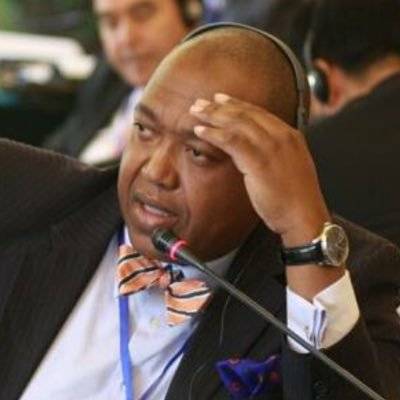The United Arab Emirates, Bahrain, Morocco and Sudan must surely renounce the Abraham Accords with Israel because of the occupation state’s ongoing atrocities against the Palestinians and violations of their legitimate rights. The normalisation deals were cobbled together in September 2020 by Jared Kushner, the son in-law and former advisor of the then US President Donald Trump. The accords were signed initially by Israel, the UAE and Bahrain to normalise relations; Morocco and Sudan then followed suit.
Israeli atrocities against the Palestinians, notwithstanding the signing of the Abraham Accords, have intensified pressure on these four Arab states to renounce normalisation with Israel. The attack on Muslim worshippers inside Al-Aqsa Mosque in occupied Jerusalem last week angered many around the world. Images on social media showed Israeli police beating Muslim worshippers viciously inside the mosque. This triggered yet another round of violence in the region with Israeli forces bombing several Hamas installations in the Gaza Strip in apparent response to rockets fired at the occupation state from both Lebanon and Gaza. Meanwhile, Israel has continued to kill Palestinians, arrest hundreds of Palestinians and demolish Palestinian homes.
Polls in Israel suggests that most Israelis, including those on what remains of the political left, support security incursions and the killing of Palestinians. They view such acts as part and parcel of their country’s security narrative. According to the Israel Democracy Institute, 53 per cent of Israelis have expressed support for the extrajudicial killings of alleged Palestinian attackers, even after their arrest and when they “no longer pose a threat”.
Former Prime Minister Yair Lapid, who is touted as being left-of-centre and “a dove” in Israeli politics ended his tenure with a similar onslaught against Palestinians as part of his election campaign in 2022. Notwithstanding the Lapid-authorised violence against the Palestinians, he lost to Benjamin Netanyahu.
READ: Abraham Accords will fail unless Israel’s never-ending occupation is addressed, says Qatar
“Israeli elections are often preceded by violence and the bombardment of occupied territories in Palestine by the Israeli forces,” explained Ahmad Vall, a scholar of Israeli-Palestine politics based in Qatar. “Killing Palestinians in the name of fighting terrorism has therefore become a commonplace in Israeli politics; it has the support of both the left and right of the political spectrum.”
Importantly, the latest attacks against the Palestinians are surely a deliberate move to divert attention away from the mass protests in Tel Aviv against the extreme far-right coalition government led by Benjamin Netanyahu. Desperate to remain in power in order to avoid being sent to prison, Netanyahu wants to overhaul the judicial system in the country to give politicians control over the Supreme Court. The prime minister has been indicted for fraud, breach of trust and bribery. He and his family have apparently received gifts including luxury cigars, champagne and jewellery from wealthy individuals, estimated to be worth more than 700,000 shekels ($200,000), in exchange for financial or personal favours.
Netanyahu entered a coalition with several extreme far-right political parties in Israel, forming what is described as the most extreme government in Israel’s history of extreme governments. Otzma Yehudit (Jewish Power) is an extreme far-right party led by Itamar Ben-Gvir. As Minister of National Security, he has authority over the police in Israel and the occupied West Bank. Ben-Gvir was once convicted of incitement to racism and supporting a terrorist organisation. Avi Maoz is the leader of Noam party, also part of Netanyahu’s coalition. Maoz has called for Jerusalem’s Gay Pride event to be banned; disapproved of equal opportunities for women in the military; and wants to limit Jewish migration to Israel to those defined as Jews according to strict religious law.
The push for judicial overhaul in Israel, if successful, could help Netanyahu to circumvent the possibility of going to prison. At the same time, it could also assist the far right to fulfil its objective of religious extremism and an overtly anti-Arab agenda in Israel.
What do the plans mean for the Israeli left? The judicial overhaul will limit the power of the Supreme Court and give the government a majority on the committee that appoints judges. This means that minorities in Israel, particularly the LGBQT+ communities, could see their rights curtailed. Christians deemed to be proselytising in Israel could be imprisoned. A draft bill to be considered by parliament includes the penalty of a year in prison for soliciting someone to convert to Christianity, while the punishment would be two years in prison if the would-be convert is a minor.
READ: Trade with Abraham Accord countries exceeded $2.8bn in 2022
The events of the past couple of weeks, especially the violence inside Al-Aqsa Mosque, bring into question the integrity of the UAE and the other Abraham Accords states that have normalised relations with Israel regardless of the ongoing violations of international law and Palestinian rights. Some argue that the normalisation deals have emboldened Israel to oppress the Palestinians even more than before, giving the settler-colonial state complete freedom to do whatever it wants in the occupied territories. The Abraham Accords are thus yet another betrayal of the people of occupied Palestine and their legitimate struggle. Hopefully, the events of the past week will serve as a warning for other Arab nations not to endorse the Abraham Accords nor otherwise normalise relations with apartheid Israel.
The views expressed in this article belong to the author and do not necessarily reflect the editorial policy of Middle East Monitor.

![Prime Minister of Israel Benjamin Netanyahu and US President Donald Trump in the White House on September 15, 2020 in Washington, DC [Alex Wong/Getty Images]](https://i0.wp.com/www.middleeastmonitor.com/wp-content/uploads/2020/09/GettyImages-1272675738.jpg?fit=920%2C614&ssl=1)







